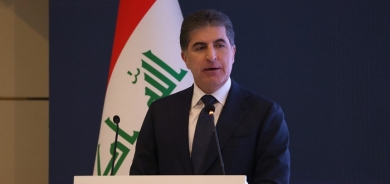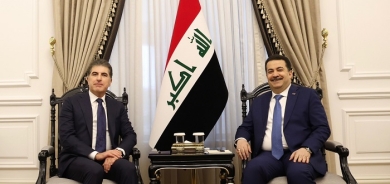Interior Ministers of Iraq, Jordan, Syria, and Lebanon Unite to Combat Narcotics

In a concerted effort to address the escalating issue of narcotics trafficking and substance abuse, the interior ministers of Iraq, Jordan, Syria, and Lebanon convened in Amman for a quadrilateral meeting on Saturday. Following the discussions, a joint press conference was held, during which Jordan's Interior Minister Mazin al-Farrayeh emphasized the urgent need for collaborative action.
Acknowledging the pervasive challenge posed by drugs across their respective nations, Minister al-Farrayeh stressed the necessity of coordinated efforts, stating, "Without joint coordination, we will not reach the results that we want." The ministers affirmed their commitment to ongoing dialogue and announced plans to establish a joint communications cell to facilitate continued cooperation in addressing the concerning rise of narcotics within their borders.
Of particular concern is the role of Jordan as a transit point for drugs, notably captagon, smuggled out of Syria, which has emerged as a hub for narcotics in the Middle East. Meanwhile, Iraq has witnessed a troubling surge in drug-related issues despite stringent measures implemented by the government. In 2023 alone, over 19,000 individuals were arrested on drug-related charges, with authorities seizing more than 15 tons of psychotropic substances.
Highlighting the gravity of the situation, Iraqi Interior Minister Abdul-Amir al-Shammari emphasized the government's unwavering resolve to combat drug trafficking and usage. He declared, "The challenge of drug gangs last year was like a battle, and our measures were harsh on them, and we promise them that this year will be harsher."
In a proactive move, Iraqi Prime Minister Mohammed Shia' al-Sudani has ordered the establishment of rehabilitation centers across all Iraqi provinces, excluding the Kurdistan Region. This initiative underscores the government's commitment to tackling the growing scourge of drug trade and abuse with the same determination as it confronts terrorism.
Furthermore, recent actions, such as Jordanian warplanes conducting airstrikes against suspected drug trafficking positions in southern Syria, illustrate the regional gravity of the issue and the determination of governments to combat it through multifaceted approaches.
As the collaborative efforts between these nations intensify, the quadrilateral meeting signals a united front against the proliferation of narcotics, reflecting a shared commitment to safeguarding the well-being and security of their populations.












